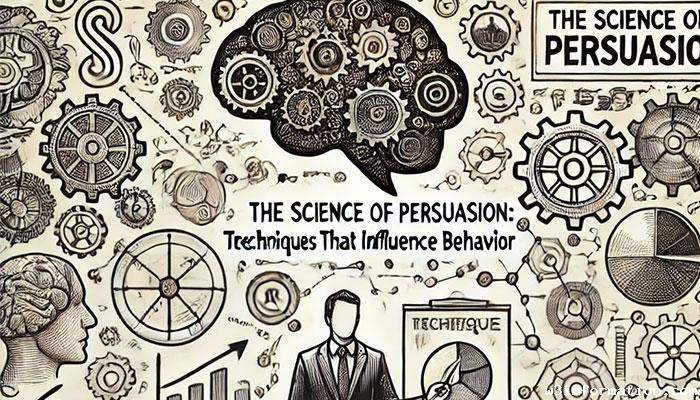The Science of Persuasion: Techniques That Influence Behavior
The ability to persuade others serves as a critical tool for directing choices and affecting behaviors across multiple situations including marketing and personal interactions. The science of persuasion utilizes psychological principles to uncover methods which successfully motivate people to embrace particular beliefs or perform definite actions. This guide examines the fundamental strategies and demonstrates how they can be applied.
Understanding Persuasion
Through communication and reasoning people use persuasion to influence others and alter their beliefs or actions. It is built on:
- Effective persuasion operates on a fundamental understanding of human behavior and cognitive processes.
- Communicators who people perceive as credible and knowledgeable produce more effective persuasion.
- Emotional resonance functions as an effective persuasive device because people frequently base their decisions on emotional responses.

The Six Principles of Persuasion
- Human nature creates a sense of obligation to repay actions that involve favors or kindness. Offering value upfront can encourage reciprocation.
- People tend to behave in accordance with their commitments after making a commitment.
- Individual behavior is often guided by the actions of others when situations are unclear. Testimonials and reviews exemplify this principle.
- Expertise combined with authority creates a foundation for respect which leads to decision-making influence. Credentials and experience strengthen this effect.
- People are more susceptible to persuasion from individuals who they feel connected to or enjoy their company. Building rapport is crucial for effective persuasion.
- Items that are scarce create a sense of value and urgency which drives consumers to act quickly.
Techniques to Influence Behavior
4.1. Through storytelling people connect emotionally which makes messages stick in their minds while improving their persuasive power.
4.2. The context in which information is presented shapes how people perceive it. Positive framing often yields better outcomes.
4.3. Strategic questions lead to active engagement and help people to see things differently.
4.4. Key messages become more accepted and memorable when they are repeated multiple times.
4.5. The act of providing a reference point shapes the interpretation and value judgment of subsequent information.
Applications of Persuasion Techniques
5.1. Marketing and Advertising strategies that utilize emotional appeal together with social proof and scarcity principles effectively drive consumer behavior.
5.2. Leaders utilize persuasive methods to energize teams, build trust among members, and create alignment with organizational goals.
5.3. Negotiators utilize persuasive techniques to create agreement among parties and reach beneficial solutions.
5.4. Strong persuasive skills improve communication effectiveness in personal relationships while resolving disputes and building deeper connections.
Ethical Considerations in Persuasion
6.1. Persuasion must maintain respect for individual autonomy while refraining from exploiting personal vulnerabilities.
6.2. The use of honesty and openness creates transparency which allows persuasive activities to adhere to ethical standards.
6.3. Ethical persuasion leads to sustained trust and credibility which benefits both relationships and reputations throughout time.
The Role of Technology in Modern Persuasion
7.1. Social Media Platforms enhance persuasive messages by using algorithms and delivering targeted content.
7.2. AI-driven tools use behavior analysis and preference monitoring to design customized persuasive approaches.
7.3. Data-driven insights enable marketers to improve their messaging and boost the impact of persuasive campaigns.
Measuring the Effectiveness of Persuasion
8.1. Behavioral Outcomes Evaluate success by monitoring shifts in people's actions and decisions.
8.2. Feedback analysis gathers responses to evaluate message impact and detect improvement opportunities.
8.3. Regular testing and adjustment of strategies improve their effectiveness throughout their implementation.
Conclusion
The science of persuasion provides effective behavioral influence techniques that maintain ethical standards. Individuals and organizations that apply these principles will reach their goals while building trust and positive relationships. Learning to persuade others benefits interpersonal communication while creating meaningful transformations throughout life.
 Top 10 Comfort Foods to Try This Winter
Top 10 Comfort Foods to Try This Winter
 Top 10 Christmas Destinations Around the World
Top 10 Christmas Destinations Around the World
 Navigating Adolescence: Tips for Parents and Teens
Navigating Adolescence: Tips for Parents and Teens
 How to Start a DIY Craft Project on a Budget
How to Start a DIY Craft Project on a Budget
 How to Build Strong Family Bonds in the Digital Age
How to Build Strong Family Bonds in the Digital Age
 The Importance of Early Childhood Education
The Importance of Early Childhood Education